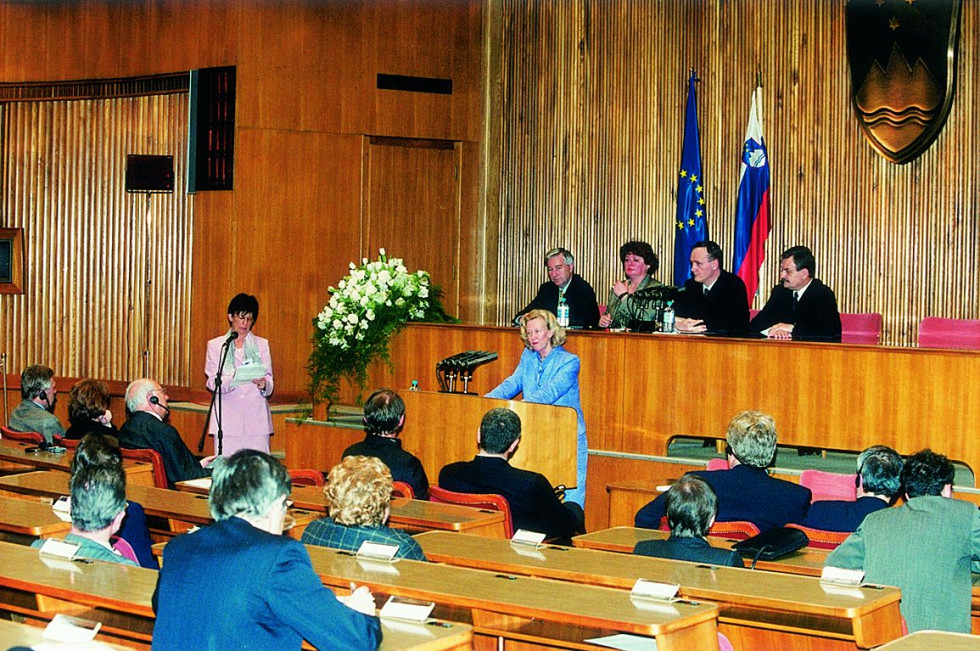The Slovenian Parliament was the only one actively involved in the EU accession negotiations
Slovenia has been "voluntarily" adapting its legislation to European legislation since 1993, having chosen the legislation of the European Communities as its reference framework. With the entry into force of the European Association Agreement on 1 February 1999, we also made a formal commitment to align our national legislation with that of the EU. We drew up a plan, which we called the National Programme for the Adoption of the Acquis. The National Programme set out our tasks for the period 1999–2002, as we set ourselves the objective of being ready for the obligations arising from EU membership by 2002. The National Assembly ensured that the adoption of legislation proceeded smoothly, thus implementing the plan, which was further supplemented and amended until the accession.
This responsibility was entrusted to the National Assembly by the Agreement on Cooperation in Slovenia's EU Integration. On 3 July 1997 the Agreement was signed by six of the seven parliamentary parties at the time and was a political commitment to support Slovenia's rapid EU integration.
Compared to the other candidate countries at that time, Slovenia had a special system for adopting the negotiating positions. In fact, the National Parliament was actively involved, as the National Assembly and the Government agreed that, in substance, the Foreign Affairs Act would be used to process the negotiating positions. This meant that Slovenia's EC Accession Treaty was an international treaty and that the negotiating positions were discussed and approved in the context of so-called partial initiatives for the conclusion of an international treaty. The Parliamentary Committee of the National Assembly on International Relations thus considered all negotiating positions and took a position on them, endorsing or amending them.
In order to function more effectively in the EU integration process, the National Assembly, following the example of other national parliaments, established a Commission for European Affairs in May 1996. The Commission played a central coordinating role on European affairs within the National Assembly. It thus differed in terms of its sphere of work from other working bodies specialising in particular areas. The Commission ceased its work on 21 May 2004, when the Committee on EU Affairs was established by a decree of the National Assembly.
The Slovenian part of the Parliamentary Association Committee also played an important role in the accession period. In accordance with the European Association Agreement, political dialogue at the parliamentary level took place within the Parliamentary Association Committee.
The important role of the National Assembly during the accession process was maintained after EU accession. The National Assembly's participation in the formulation of Slovenian positions was based in principle on the Finnish model of parliamentary handling of EU affairs and slightly adapted to the Slovenian political system. Most of the materials related to decision-making for Slovenia's activities in the Council of the EU and the European Council are adopted by the Committee on EU Affairs, and for foreign and security policy by the Committee on Foreign Policy. In plenary, the National Assembly considers only key documents and decisions, such as the Declaration on activities of the Republic of Slovenia in the institutions of the European Union.
The National Assembly was also active during the two Slovenian Presidencies of the EU Council (in 2008 and 2021), organising several inter-parliamentary conferences and committee meetings on topical EU issues.


